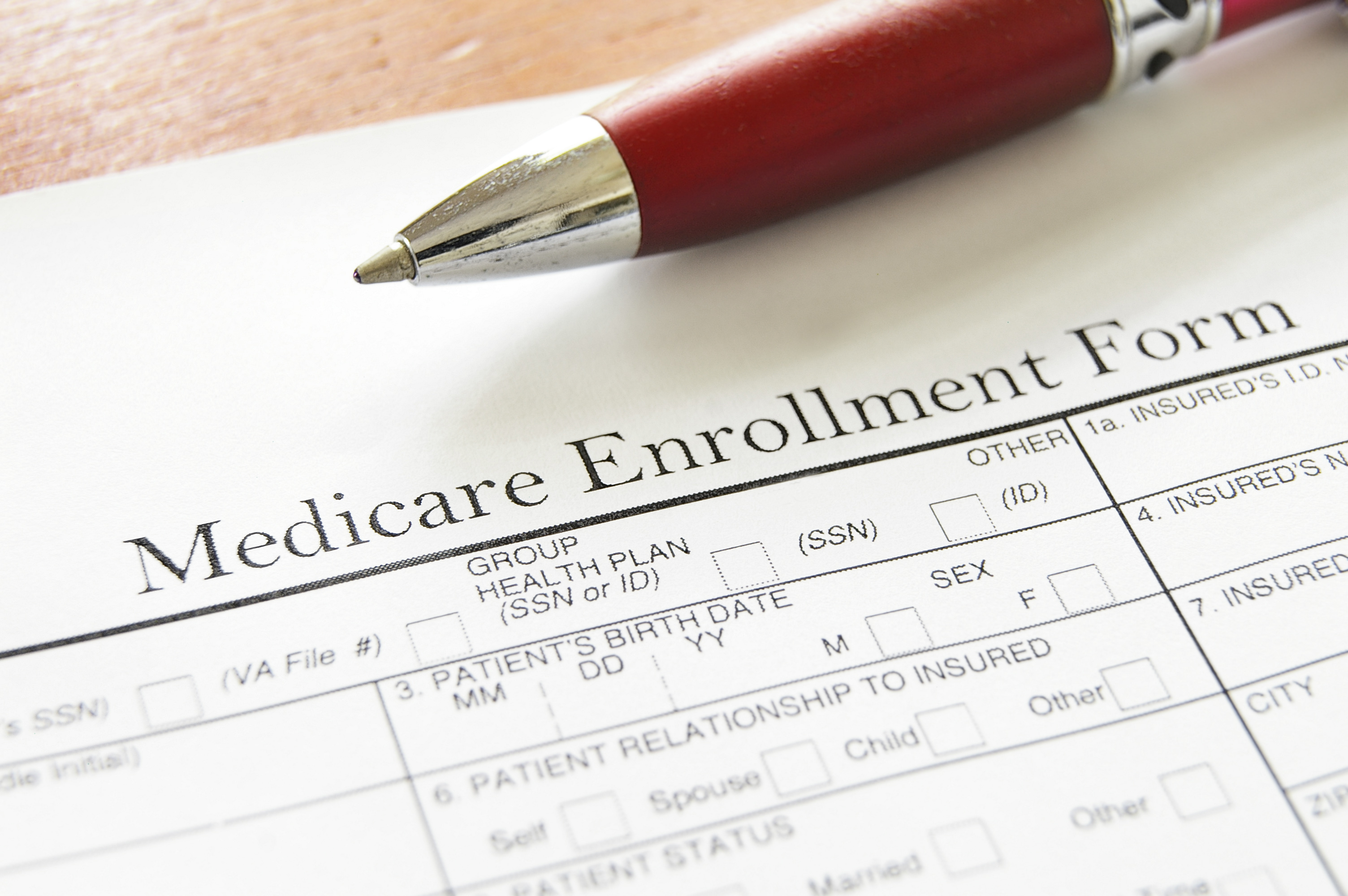What You’ll Pay for Medicare in 2015
The premiums and deductible for Part B are the same as in 2014, but you may have to pay more for Part D.


Profit and prosper with the best of Kiplinger's advice on investing, taxes, retirement, personal finance and much more. Delivered daily. Enter your email in the box and click Sign Me Up.
You are now subscribed
Your newsletter sign-up was successful
Want to add more newsletters?

Delivered daily
Kiplinger Today
Profit and prosper with the best of Kiplinger's advice on investing, taxes, retirement, personal finance and much more delivered daily. Smart money moves start here.

Sent five days a week
Kiplinger A Step Ahead
Get practical help to make better financial decisions in your everyday life, from spending to savings on top deals.

Delivered daily
Kiplinger Closing Bell
Get today's biggest financial and investing headlines delivered to your inbox every day the U.S. stock market is open.

Sent twice a week
Kiplinger Adviser Intel
Financial pros across the country share best practices and fresh tactics to preserve and grow your wealth.

Delivered weekly
Kiplinger Tax Tips
Trim your federal and state tax bills with practical tax-planning and tax-cutting strategies.

Sent twice a week
Kiplinger Retirement Tips
Your twice-a-week guide to planning and enjoying a financially secure and richly rewarding retirement

Sent bimonthly.
Kiplinger Adviser Angle
Insights for advisers, wealth managers and other financial professionals.

Sent twice a week
Kiplinger Investing Weekly
Your twice-a-week roundup of promising stocks, funds, companies and industries you should consider, ones you should avoid, and why.

Sent weekly for six weeks
Kiplinger Invest for Retirement
Your step-by-step six-part series on how to invest for retirement, from devising a successful strategy to exactly which investments to choose.
I am looking over my budget for next year. How much will Medicare premiums cost in 2015?
Medicare Part B premiums will be $104.90 per month in 2015, which is the same as the 2014 premiums. The Part B deductible will also remain the same for 2015, at $147. The Medicare Part A deductible, which covers the first 60 days of Medicare-covered inpatient hospital care, will rise to $1,260 in 2015, a $44 increase from 2014. The daily coinsurance rate for days 21 through 100 in a skilled nursing facility will also increase slightly, to $157.50 in 2015.
If your annual adjusted gross income (plus tax-exempt interest) is higher than $85,000 on an individual tax return or $170,000 if married filing jointly, you’ll have to add a high-income surcharge on top of your Part B premiums. That will boost your monthly cost between $42 and $230.80 (the same as in 2014). The monthly premiums for the highest income level -- single filers earning more than $214,000 for the year or married couples earning more than $428,000 -- total $335.70 per person. For more information about the premiums and the procedures for contesting the surcharge if your income has decreased over the past year because of certain life-changing events, see the Social Security Administration’s Medicare Premiums: Rules for Higher-Income Beneficiaries.
From just $107.88 $24.99 for Kiplinger Personal Finance
Become a smarter, better informed investor. Subscribe from just $107.88 $24.99, plus get up to 4 Special Issues

Sign up for Kiplinger’s Free Newsletters
Profit and prosper with the best of expert advice on investing, taxes, retirement, personal finance and more - straight to your e-mail.
Profit and prosper with the best of expert advice - straight to your e-mail.
Most people fill gaps in Medicare coverage by buying a Medicare supplement policy and a Part D prescription-drug plan, or by buying a Medicare Advantage policy, which provides both medical and drug coverage from a private insurer. You have from October 15 to December 7 to choose a Part D or Medicare Advantage plan for 2015. Medicare supplement policies don’t have an annual open-enrollment period; you can buy them anytime. But you usually can be rejected or charged more because of your health if you get the policy more than six months after signing up for Medicare Part B.
On average, Part D premiums are rising by $1 in 2015, to $32 per month. But that average is for all plans. Some of the most popular plans are boosting premiums by more than that, s ays Ross Blair, senior vice-president of eHealthMedicare.com, which includes tools to help people compare policies. When you consider the price increases and the number of people enrolled in each plan, the average increase is 11%, says Blair. And some insurers are cutting back their offerings. The average number of plans in each state is decreasing by 14%, he says. If your plan leaves the business, you’ll need to pick a new plan during open enrollment or you will not have prescription-drug coverage in 2015. Your insurer should have notified you if it is leaving your area in the Annual Notice of Change, which must be sent out by late September. Everyone with a Part D plan should receive this document, which includes important information about changes to your plan’s coverage and costs.
The average premium for a Medicare Advantage plan is going up by about 9.5%, to $33.90 per month (you’re still on the hook for Part B premiums). However, premiums will remain the same for about 61% of people if they elect to stay with the same Medicare Advantage plan. Even so, it’s a good idea to check out all of your policy options during open-enrollment period, comparing premiums as well as out-of-pocket costs for your drugs and typical medical expenses. For more information about picking a 2015 Part D or Medicare Advantage plan during open enrollment, see It’s Time for Medicare Open Enrollment.
Profit and prosper with the best of Kiplinger's advice on investing, taxes, retirement, personal finance and much more. Delivered daily. Enter your email in the box and click Sign Me Up.

As the "Ask Kim" columnist for Kiplinger's Personal Finance, Lankford receives hundreds of personal finance questions from readers every month. She is the author of Rescue Your Financial Life (McGraw-Hill, 2003), The Insurance Maze: How You Can Save Money on Insurance -- and Still Get the Coverage You Need (Kaplan, 2006), Kiplinger's Ask Kim for Money Smart Solutions (Kaplan, 2007) and The Kiplinger/BBB Personal Finance Guide for Military Families. She is frequently featured as a financial expert on television and radio, including NBC's Today Show, CNN, CNBC and National Public Radio.
-
 Nasdaq Leads a Rocky Risk-On Rally: Stock Market Today
Nasdaq Leads a Rocky Risk-On Rally: Stock Market TodayAnother worrying bout of late-session weakness couldn't take down the main equity indexes on Wednesday.
-
 Quiz: Do You Know How to Avoid the "Medigap Trap?"
Quiz: Do You Know How to Avoid the "Medigap Trap?"Quiz Test your basic knowledge of the "Medigap Trap" in our quick quiz.
-
 5 Top Tax-Efficient Mutual Funds for Smarter Investing
5 Top Tax-Efficient Mutual Funds for Smarter InvestingMutual funds are many things, but "tax-friendly" usually isn't one of them. These are the exceptions.
-
 What Does Medicare Not Cover? Eight Things You Should Know
What Does Medicare Not Cover? Eight Things You Should KnowMedicare Part A and Part B leave gaps in your healthcare coverage. But Medicare Advantage has problems, too.
-
 Medicare or Medicare Advantage: Which Is Right for You?
Medicare or Medicare Advantage: Which Is Right for You?From overall costs to availability of care, here's what to know about the differences between traditional Medicare and Medicare Advantage plans.
-
 Is a Medicare Advantage Plan Right for You?
Is a Medicare Advantage Plan Right for You?Medicare Advantage plans can provide additional benefits beneficiaries can't get through original Medicare for no or a low monthly premium. But there are downsides to this insurance too.
-
 Medicare Advantage 2024 Plans Dip in Ratings
Medicare Advantage 2024 Plans Dip in RatingsMedicare Advantage and Medicare Part D plans lose 'star' on the CMS performance score card.
-
 Considering a Medicare Advantage Plan? Be Wary of Promises
Considering a Medicare Advantage Plan? Be Wary of PromisesThese private insurance alternatives to Medicare are growing in popularity at the same time they’re under scrutiny for their sales tactics and coverage.
-
 Medicare Open Enrollment Occurs Annually from October to December — Here's What You Need to Know
Medicare Open Enrollment Occurs Annually from October to December — Here's What You Need to KnowMedicare open enrollment is underway. Here's what you need to get done.
-
 4 (Imperfect) Ways Retirees Can Pay for Dental Care
4 (Imperfect) Ways Retirees Can Pay for Dental Carehealth insurance Since Medicare doesn't provide dental benefits, seniors must consider other options to cover this need.
-
 Get Free Over-the-Counter COVID Tests Through Medicare
Get Free Over-the-Counter COVID Tests Through MedicareMedicare Beneficiaries can get up to eight tests a month through both original Medicare and Advantage plans.